Is It Safe For Dogs To Eat Jicama?
11.12.2021.
You are probably aware that most dogs will eat anything they can get their paws on. They don’t really care if it’s something safe for them, nor do they think about the potential harm that comes from eating potentially toxic things. One of the things your dog could potentially get its paws on is jicama. Many dog owners wonder, “Can dogs eat jicama?” If you wonder the same thing, here are a few things canine nutritionists want to tell you about dogs and jicama.
What is jicama?
Jicama is a native Mexican vine. However, the name refers to the edible root of the plant. It is often called Mexican yam bean or Mexican turnip. The plant has a tuberous root, and people describe it as a sweeter, juicier version of potato. It is safe for humans to eat, and it can offer us some health benefits. While this plant is not that popular around the world, but Central and South America love it.
Is jicama safe for dogs?
Whenever you decide to introduce something new to your dog’s diet, you have to make sure it’s safe for your dog. In fact, you should make sure your dog will benefit from it. Simply including something new doesn’t really make sense because dogs don’t need such a diverse diet as we do. Before you decide to give your dog some jicama, talk to your vet and make sure they give you the green light.
Canine nutritionists are capable of answering the question, “Is jicama safe for dogs?” They will tell you - yes, jicama is safe for dogs to eat. In fact, it can actually be very beneficial. However, you have to make sure you follow a few simple rules for feeding your dog jicama. Those rules are;
1. Portion control
While dogs can safely eat jicama, overeating is not a good idea. That is good advice in general, and you shouldn’t let your dog stuff their face with any kind of food, even their kibble. Too much jicama can cause gastrointestinal upsets.
2. Remove stem and leaves
If you decide to give your dog jicama, you should make sure there aren’t any seeds, leaves, pods, or stems on it. The “fleshy” part of the root is edible, and the things we mentioned contain a toxin called rotenone, which is toxic for our dogs and us.
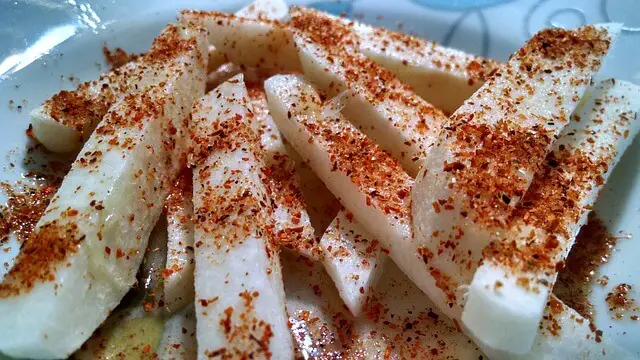
3. Steam or cook it
Dogs could eat raw jicama just as they can eat cooked or steamed jicama. However, we can tell you from personal experience that giving your dog cooked or steamed jicama is better. This is one of the pieces of advice we got from our canine nutritionist. Raw jicama can cause your dog to become gassy and get diarrhea.
Benefits of jicama for dogs
Before including something new into your dog’s diet, it would be best to see if the new food offers any benefits to your dog. Sure, dogs can enjoy occasional snacks or treats, but jicama is tasteless, which means it has to provide some benefits to make sense to include it in the dog’s diet. Luckily, jicama is packed with healthy nutrients that provide health benefits. Here are some of the best things jicama can offer our dogs and us;
1. Low in calories
Jicama is very low in calories, but it is packed with nutrients. That means it is an excellent food for overweight or obese dogs. You can offer it as a snack instead of their usual treats. Your dog will feel full but will not ingest too many calories.
2. Packed with minerals
Jicama contains different essential minerals that play all sorts of crucial roles in the dog’s body. For example, iron is crucial for red blood cell production, calcium and magnesium support bones and teeth, and potassium is vital for muscle, nerves, and normal cell functioning.
3. Promotes gut health
Mexican potato is packed with fiber, which is necessary for healthy digestion. One cup of jicama contains 6,5 g of fiber, which is more than the dog’s daily need. It also contains inulin, which is a type of prebiotic. That means jicama helps restore the balance in your dog’s digestive system.
4. Packed with antioxidants
As dogs grow old, they can develop different forms of cancer. One thing that can help prevent cancers from developing is antioxidants. Jicama is packed with them. Antioxidants will fight free radicals and prevent cancer from developing.
5. Vitamins
Mexican potato contains a lot of vitamins. We will assume you know how important and beneficial vitamins are. They play a role in different body processes and are crucial for your dog’s overall health. Jicama contains vitamin C, E, and beta-carotene.
VET TIP: Jicama is usually safe for dogs. However, some dogs can get a reaction to it. You should try giving your dog a tiny bit of this vegetable and see how they react. If all goes well, you can give them the recommended portion of jicama.
How much jicama should I give my dog?
The most important thing is portion control. You shouldn’t give your dog too much of one thing. In fact, that can cause more problems than it solves. When it comes to this vegetable, you should follow the “golden rule” - make sure jicama is not more than 5% of your dog’s food intake.
You can easily cut the jicama into tiny pieces and mix it with your dog’s kibble. You can also cut it into strips and give your dog individual pieces as treats. Whatever you decide to do, just make sure you don’t give too much of it to your dog. If that happens, you will most likely notice these issues;
- Diarrhea
- Vomiting
- Constipation
- Loss of appetite
- Abdominal pain
Jicama can be a great addition to your dog’s diet; just make sure you follow your vet’s or nutritionist’s advice on serving.
Health risks of jicama for dogs
If you decide to offer your dog some jicama, there are a few things you should consider that can cause health issues for your dog. Here are the most important ones
1. Leaves, stems, and seeds
These parts of a plant contain a toxic substance that can be extremely harmful to dogs if ingested. You should always remove these parts from jicama before you offer them to your dog.
2. Chocking hazard
Jicama has a firm and crunchy texture, and this can pose a choking hazard for dogs, especially the smaller ones. We would always advise you to steam or cook jicama so it will be easier for dogs to consume
3. Gastrointestinal problems
Certain dogs can experience gastrointestinal distress, gasses, or even diarrhea because they might have difficulty digesting jicama. If your dog is one of them, you should stop giving him jicama, and find something else to share with your dog that will not cause problems for him.
Precautions to take when feeding jicama to your dog
When offering jicama to your dog, there are a few steps you should take to ensure your dog will not experience any distress and that the jicama will be beneficial for him. Here is what you should do
1. Introduce slowly
Whenever you are introducing something new to your dog's diet, you should do it slowly. Only offer a small piece of jicama and watch for any reaction from your dog. If it seems that your dog is fine, you can offer him more.
2. Cut into smaller pieces
To remove the choking hazard, you should always cut jicama into smaller pieces and, by that, secure that there is no possibility of choking. This is extremely important if you own a smaller dog breed, which tends to choke more often because of their smaller system.
3. Serve in moderation
Too much of a good thing can be bad. The same applies to jicama. Just because your dog seems to enjoy this food, you should only offer him in moderation because more of this food at once can also cause gastrointestinal distress.
4. Conuslt with your vet
You should always consult with your vet whenever you plan to introduce something new to your dog's diet. This is especially true if your dog suffers from a certain health condition or even if he is taking some medications.
World Dog Finder team

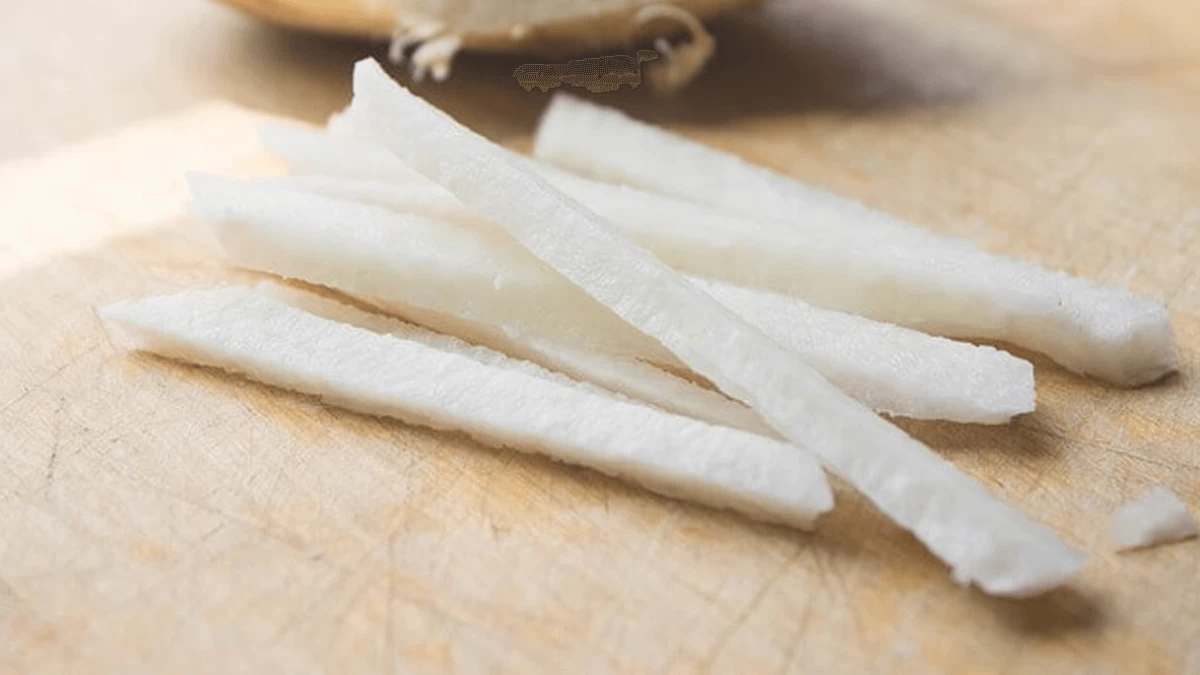
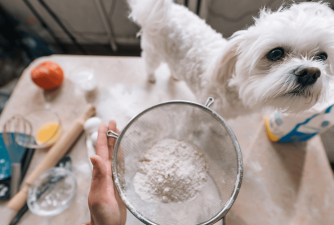
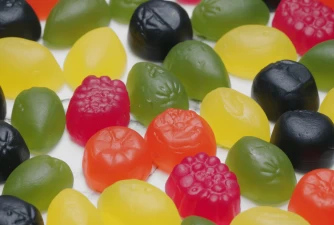
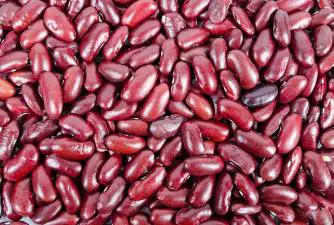
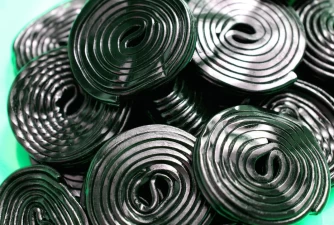

Share